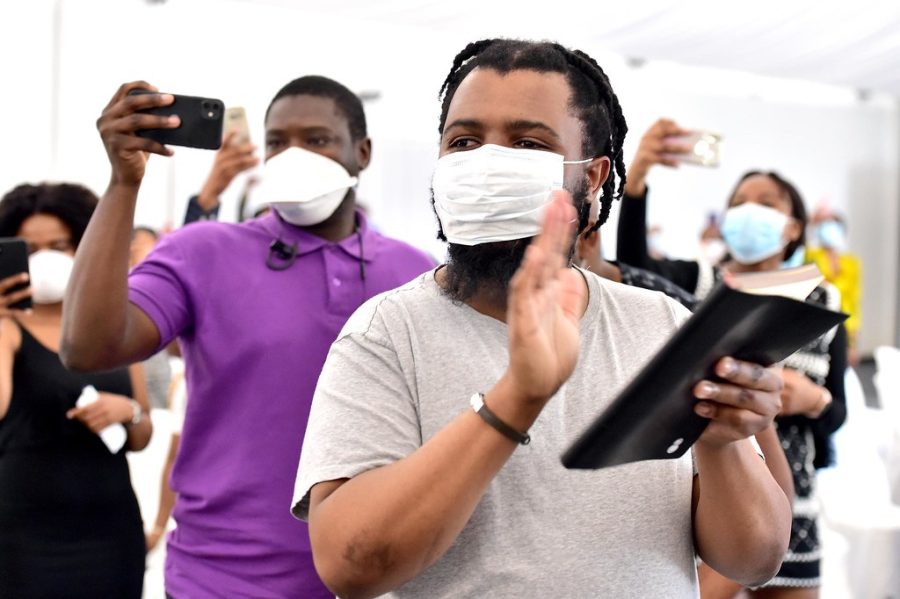COVID-19 cases declining, restrictions lifting
Mask wearing restrictions are being lifted by countries around the world as cases of the virus are declining.
After two years of COVID-19 thrashing America, as well as the rest of the world, cases for the virus are slowly going down. Even though there were multiple variants of the virus that broke out at different times, they all have slowed down. This seems to be a result of high vaccination rates and somewhat warmer temperatures.
According to the Centers for Disease Control and Prevention (CDC), as of March 2, the current seven-day moving average of daily cases has decreased by 28.5%. The two strains of the virus that are considered the most dangerous and contagious are the Delta variant and the Omicron variant. Mask restrictions are being lifted across America, but this time they are being lifted for wearing them indoors.
With the restrictions of mask wearing indoors, that also means that a large quantity of schools across America are no longer requiring students and staff to wear masks. The CDC still highly recommends that individuals with underlying health conditions still wear masks indoors and stay updated with recent COVID-19 news. While some smaller public businesses may still require the wearing of masks inside their building, that would only be the businesses’ policy, as the CDC has lifted the masking restrictions. Mask wearing during school hours is no longer required indoors, but is still optional for students and staff if they choose to wear one. This new recommendation is not particularly in favor of those who are vaccinated or unvaccinated.
Another potential reason for virus cases declining could be that since so many people have already gotten sick, a presence of antibodies could be a major influence. The antibody levels worldwide are at an all time high, which helps with people not getting sick when exposed to the virus.
Even if someone contracts the virus and has little to no symptoms, that does not mean that COVID-19 has not affected their body in some way. According to the CDC, it has been determined that the most common long term effects of COVID-19 are fatigue, shortness of breath, cough and joint and chest pain. While those are examples of physical long term effects, there are also a few mental effects to consider. These could include decline in mental health, headaches, rapid heartbeat and occasional fever.
After a hospitalization spike in January, the numbers have slowly gone down. That is, for the people that are fully vaccinated. For unvaccinated people, while hospitalization numbers have decreased, they are still much higher compared to fully vaccinated individuals. This is a good reminder to promote receiving vaccines and boosters.
While cases are decreasing around the world, that does not mean that cases couldn’t rise quickly again. Following all other guidelines posted by the CDC is an important key to making sure that the decline continues so society can be closer to living a normal life once again.









![Freshman Jordan Delon [left] and sophomore Jaden Winterhalter [right] round the final stretch as they run the 800 meter.](https://www.fhs-press.com/wp-content/uploads/2022/05/Sports-Track-Field-Pawlowski-475x317.jpg)



